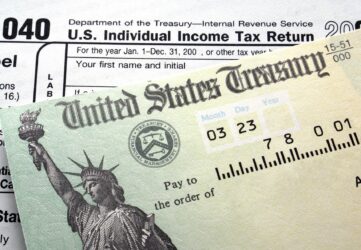Maximizing your tax credits can significantly reduce your tax burden and increase your savings. Here’s a comprehensive guide to help you understand and take full advantage of various tax credits available in Kansas.
Understanding Tax Credits
Tax credits directly reduce the amount of tax you owe, unlike deductions that reduce your taxable income. This means that a $1,000 tax credit saves you $1,000 in taxes. Tax credits can be either refundable or non-refundable. Refundable credits can reduce your tax liability below zero, resulting in a refund, while non-refundable credits can only reduce your liability to zero.
Common Tax Credits
There are numerous tax credits available in Kansas, each designed to benefit different groups of taxpayers. Here are some of the most common ones:
Earned Income Tax Credit (EITC)
The EITC is designed to benefit low-to-moderate income working individuals and families. The amount of credit depends on your income, filing status, and number of qualifying children. For more information, visit the IRS EITC page.
Child Tax Credit
The Child Tax Credit provides a significant benefit to taxpayers with qualifying children under the age of 17. The maximum credit amount can vary depending on your income. For details, check the IRS Child Tax Credit page.
Education Credits
Education credits, such as the American Opportunity Credit and the Lifetime Learning Credit, help offset the cost of higher education by reducing the amount of tax owed. Visit the IRS Education Credits page for more details.
Saver’s Credit
The Saver’s Credit, also known as the Retirement Savings Contributions Credit, is available to eligible taxpayers in Kansas who make contributions to a retirement plan, such as a 401(k) or IRA. Learn more on the IRS Saver’s Credit page.
Avoiding Pitfalls
While tax credits offer substantial savings, it’s essential to avoid common pitfalls that can lead to issues with the IRS in Kansas.
Filing Incorrect Information
Ensure that all information provided on your tax return is accurate and complete. Errors can delay processing and may result in penalties.
Overlooking Eligibility Requirements
Each tax credit has specific eligibility criteria. Double-check that you meet all requirements before claiming a credit to avoid issues with the IRS.
Missing Deadlines
Be aware of tax filing deadlines to ensure you submit your return on time. Late filings can result in penalties and interest.
Takeaway
Maximizing your tax credits in Kansas can lead to significant savings. Understanding the various credits available and avoiding common pitfalls is crucial. By staying informed and diligent, you can make the most of the tax credits available to you.
Need Help with Tax Credits?
If you need assistance evaluating and claiming tax credits, contact an experienced tax attorney at The Law Office of Jason Carr. Schedule a consultation today to ensure you maximize your savings and comply with all tax regulations in Kansas. Call us at 888-661-6583 for expert guidance.





